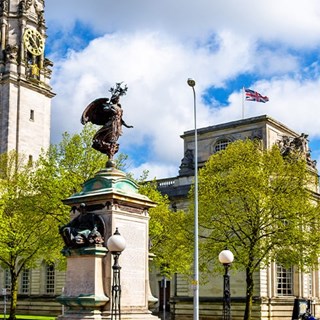Your nearest offices
Please enter your postcode to see your nearest offices
Cardiff
Bedford
- Haines Watts Bedford
- First Floor, Woburn Court
- Bedford
- Bedfordshire
- MK42 7PN
bedford@hwca.com
01234 841842
Skegness
- Haines Watts Skegness
- 23 Algitha Road
- Skegness
- Lincolnshire
- PE25 2AG
skegness@hwca.com
01754 766991
Leicester
- Haines Watts Leicester Ltd
- 20 Allandale Road
- Leicester
- Leicestershire
- LE2 2DA
leicester@hwca.com
0116 396 0900
Wolverhampton
- Haines Watts Wolverhampton
- Keepers Lane
- Wolverhampton
- WV6 8UA
wolverhampton@hwca.com
01902 793333
Cirencester
- Haines Watts Cirencester
- Unit 9
- Cirencester
- Gloucestershire
- GL7 6JJ
cirencester@hwca.com
01793 533838
Launceston
- Haines Watts Launceston
- 9 Western Road
- Launceston
- Cornwall
- PL15 7AR
launceston@hwca.com
01566 777189
Okehampton
- Haines Watts Okehampton
- 13 East Street
- Okehampton
- Devon
- EX20 1AS
okehampton@hwca.com
01837 55661
Swindon
- Haines Watts Swindon
- Old Station House
- Swindon
- Wiltshire
- SN1 3DU
swindon@hwca.com
01793 533838
Our Offices
Haines Watts Bedford, First Floor, Woburn Court, 2 Railton Road, Woburn Road Industrial Estate, Kempston, Bedford, Bedfordshire, MK42 7PN
Tel: 01234 841842
Email: bedford@hwca.com
Sophia House,, 28 Cathedral Road, Cardiff, CF11 9LJ
Tel: 02921 302 089
Email: office.cardiff@hwca.com
Haines Watts Cirencester, Unit 9, Cirencester Office Park, Tetbury Road, Cirencester, Gloucestershire, GL7 6JJ
Tel: 01793 533838
Email: cirencester@hwca.com
Haines Watts Launceston, 9 Western Road, Launceston, Cornwall, PL15 7AR
Tel: 01566 777189
Email: launceston@hwca.com
Haines Watts Leicester Ltd, 20 Allandale Road, Leicester, Leicestershire, LE2 2DA
Tel: 0116 396 0900
Email: leicester@hwca.com
Haines Watts Okehampton, 13 East Street, Okehampton, Devon, EX20 1AS
Tel: 01837 55661
Email: okehampton@hwca.com
Haines Watts Skegness, 23 Algitha Road, Skegness, Lincolnshire, PE25 2AG
Tel: 01754 766991
Email: skegness@hwca.com
Haines Watts Swindon, Old Station House, Station Approach, Newport Street, Swindon, Wiltshire, SN1 3DU
Tel: 01793 533838
Email: swindon@hwca.com
Haines Watts Wolverhampton, Keepers Lane, The Wergs, Wolverhampton, WV6 8UA
Tel: 01902 793333
Email: wolverhampton@hwca.com











